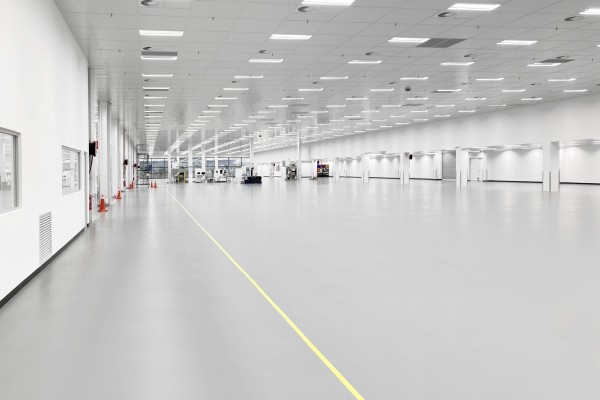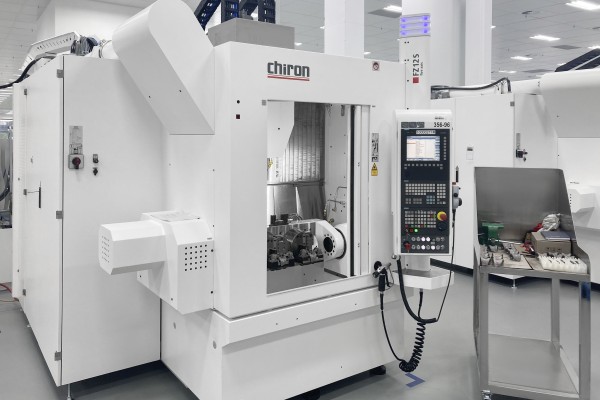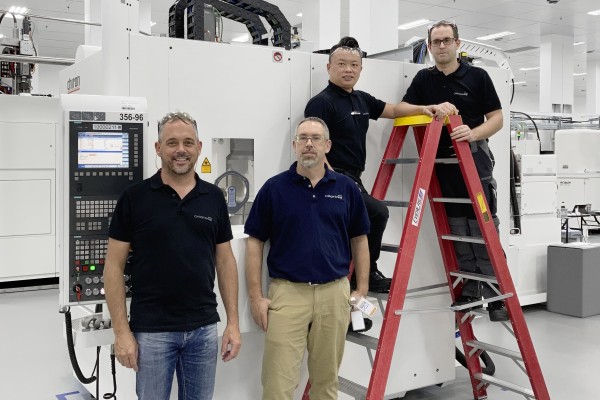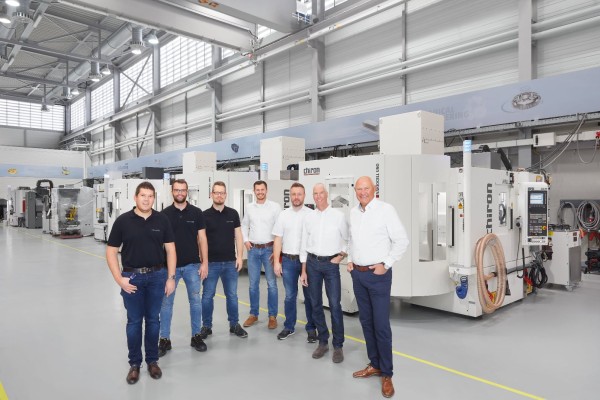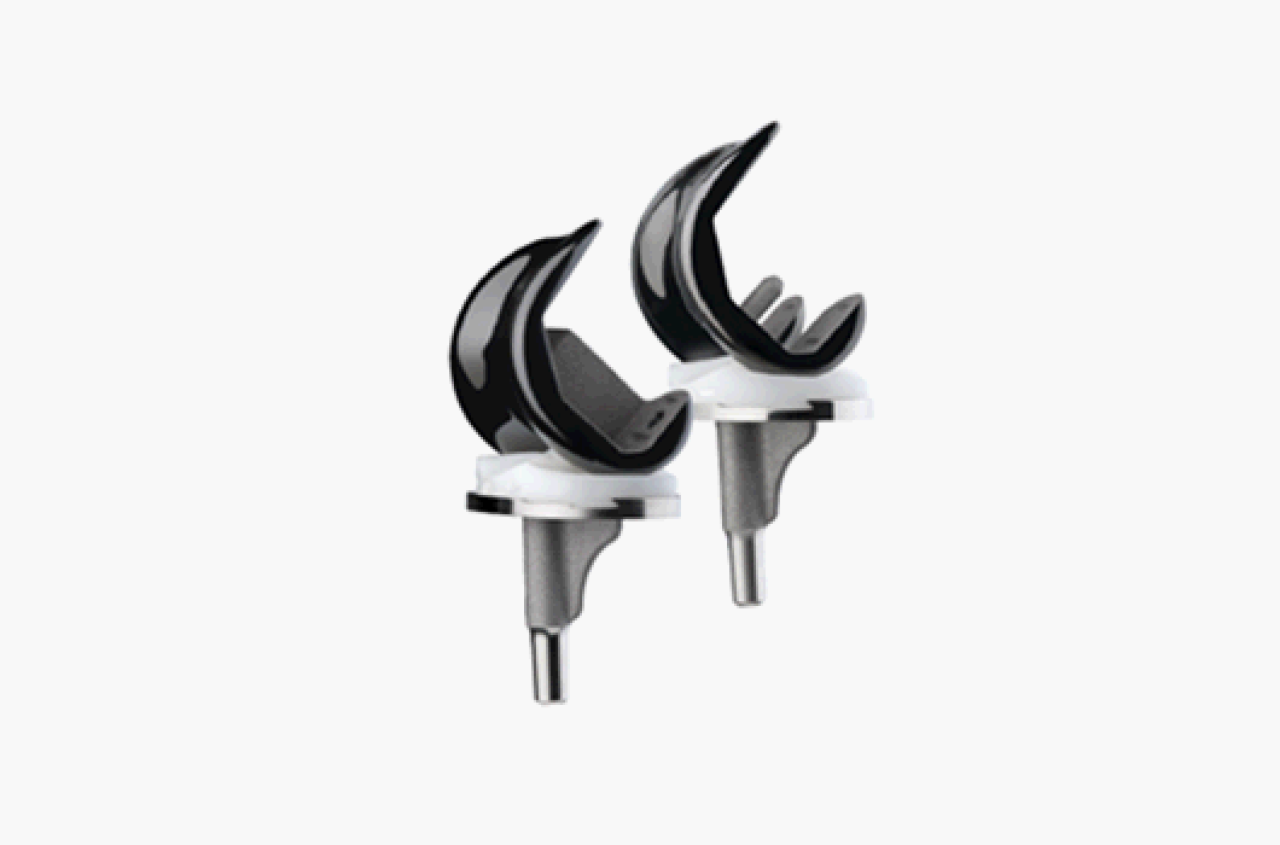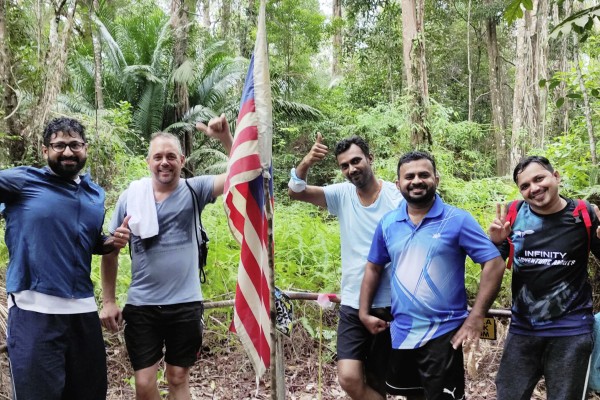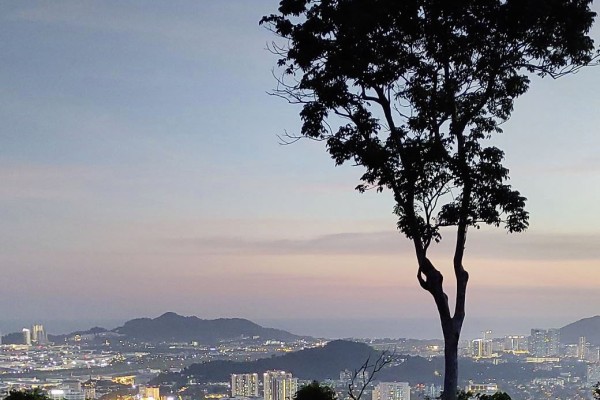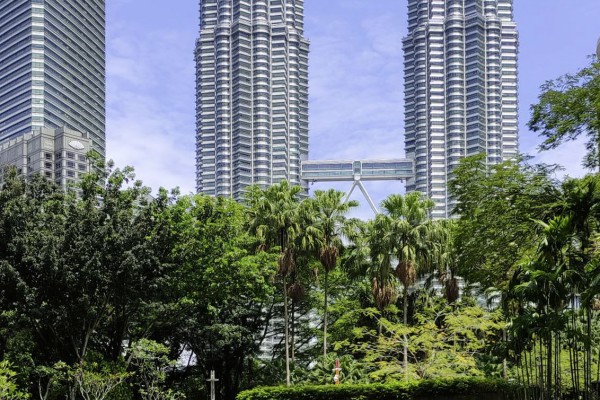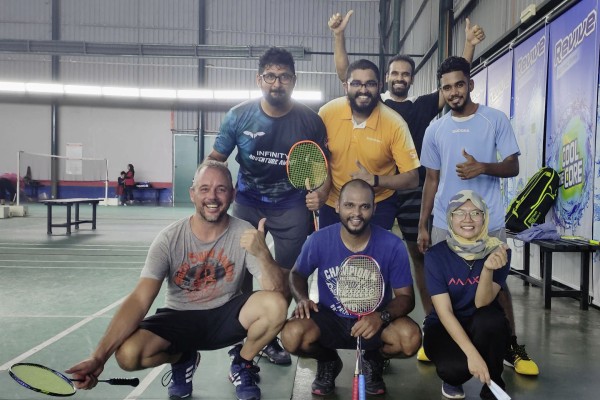All
production at Smith & Nephew Operations Sdn Bhd is to start in early 2023.
While this might sound manageable, in the midst of a pandemic, this represents
a logistical and organizational challenge for everyone involved in the CHIRON
Group's turnkey project. First, 15 machines had to be constructed at the CHIRON
Group Precision Factory in Neuhausen, Germany. Then, project integration had to
be carried out by the Application department in Tuttlingen, Germany or, after
five weeks of transport by sea, by CHIRON America in Charlotte, USA. The
machining centers then needed to be shipped from Germany and America to Penang
(also known by the Malay name »Pulau Pinang«), Malaysia. After that, they had
to be installed and commissioned on-site, the machines needed to be accepted by
the customer, validated and training also provided. All standard procedure so
far. However, further complications were caused by the coronavirus pandemic,
such as delays in transporting people and material. In addition, extensive and
time-consuming customs and visa formalities had to be dealt with and the
alternating service teams from Germany and the USA had to quarantine for 14
days for each new assignment.
First-rate support from Amy
and John
Whether
visiting the Consulate General of Malaysia in Frankfurt or requesting,
completing and promptly sending the various forms for work visas, service technicians Marco Wagner
and Thomas Schöpf – the first team to travel to Penang – were expertly supported
in organizational matters by Amy Kozina, Human Resources Manager at CHIRON America. She coordinated all of the
paperwork and kept people in the know about upcoming deadlines. Moreover, the
Human Resources Manager will continue to work in the background, putting all of
the vital elements in place for the teams from Germany and the USA, until the
end of the project.
CHIRON
Group Service gained a new local team member in the form of Hock Leong Ch`ng,
or – to call him by his »international« name – »John«. He has been the primary
contact person for Smith & Nephew since October 1 and will assist with all
of the next steps until the start of production, before then offering support
to the production lines. Frank Geiselhart, Head of Global Service at the CHIRON
Group, calls the new service technician »the first service employee at the
Malaysia site«. He continues, »the Asia Pacific market for medical technology
is growing rapidly, with more and more international companies like Smith &
Nephew building their own manufacturing sites here and needing quick and expert
on-site support.«
Providing support from the
hotel via HoloLens
Every
new installation performed by CHIRON Group Service involves unpacking and
installing the machinery. But this was not possible for Smith & Nephew
Operations. In early September, the specialists from Tuttlingen had to
quarantine in a hotel around 300 kilometers away in Kuala Lumpur. However, they
were fully prepared with HoloLens and a laptop and could remotely provide
advice and support.
This
went very well and, as Project Manager Gjvat Kosumi showed the team on their
first day at the new, state-of-the-art site in Penang, the two CHIRON FZ 12 S
five axis machining centers were in exactly the right position in the big, but
still largely empty hall. Gjevat Kosumi works for Smith & Nephew
Manufacturing AG based in the northern Swiss town of Aarau, where over 300,000
hip and knee implants are manufactured every year. He is responsible for
establishing the production of femur components for artificial knee joints in
Malaysia and will achieve this using the two machining centers from the
Application department in Tuttlingen, as well as additional systems for
grinding and polishing made by other manufacturers.
In addition, the project management team and machine setters Sam and
Kumar from Smith & Nephew worked in close collaboration to ensure that
commissioning went smoothly. Thomas Schöpf said it was »a routine procedure«.
Alternating teams until the start
of production
The
service technicians from Germany finished their assignment on November 26 and
it is now the turn of Jason Stombaugh and other colleagues from Charlotte, USA,
to work in partnership with John from Smith & Nephew. Their task is to install
and to commission eight FZ 12 S machining centers with a VariocellUno
automation unit for manufacturing tibial plateau prostheses. The German team
will then be called upon again and a service technician from Tuttlingen will
assist John with installing five additional machines for manufacturing the
inlay that acts as a sliding bearing between the two components. Two FZ 08 W
machining centers will be used to machine blanks on three axes, while the DZ 08
W with VariocellUno will subsequently machine the inlays with high precision on
four axes.
Once
all of the machines are ready for operation, the German and American service
teams will start alternating again. They will prepare and carry out the process
of acceptance by the customer, integrate additional components, carry out
validation and also – to ensure productive operation from the very start of
2023 – provide the operating personnel with training. You can read more about
this and the production-related challenges of the turnkey project in an
upcoming edition of speedfactor.
Smith & Nephew
The
success story of Smith & Nephew began in Hull, a city in northern England,
in 1856. This is where pharmacist Thomas James Smith, and later his nephew
Horatio Nelson Smith, sold bandages and pharmaceutical products. In the
process, they laid the foundation of a medical technology business that is now
a public limited company that employs around 16,000 workers in 100 countries.
With the slogan »Life unlimited«, Smith & Nephew develops technologies for
the business areas of sports medicine, orthopedic reconstruction, trauma
products and advanced wound management. The company's main headquarters are in
the town of Watford, to the north of London. Meanwhile, in Malaysia, there is a
sales subsidiary in Kuala Lumpur and Smith & Nephew Operations Sdn Bhd is
situated in Penang. The new high-tech site – covering an area of 250,000 square
meters for manufacturing, technology and logistics and which will create 800
new jobs – will supply the Asia Pacific market with orthopedic products and
support the global supply chains from 2023.
https://www.smith-nephew.com/
Travel diary from service technician Marco Wagner:
After
23 hours of traveling, we landed at Kuala Lumpur International Airport on
September 2. We then passed through more than ten stations until all of the
health checks and immigration formalities had been completed. After two hours,
we were finally able to sit in a taxi on the way to the hotel where we would be
quarantining. We were received by two of the hotel's members of staff wearing
protection suits. They gave us an envelope with the menu and room key and
escorted us to the lift. Having arrived in our room, we then unpacked, relaxed
and sat tight. There were to be no dinners in restaurants, no walks through
Chinatown or drinks with a view of the skyline at the Heli Lounge Bar – a
helicopter pad by day, and probably the city's coolest bar by night.
Instead, we spent 14 days self-isolating, only opening the door three times a
day to take in meal trays before shutting it again. A strange experience
indeed. Fortunately, there were no issues with the Wi-Fi and we were able to
work and enjoy the spectacular view of the Petronas Twin Towers, which stand at
452 meters. After the end of the quarantine period, we even found that we
unexpectedly had five days to check out the towers and the city before we were
granted our work visas. We were finally able to set off for Penang on September
20.
Penang (also known by the Malay name »Pulau Pinang«) is both a Malaysian state
and the name of an island. While the Smith & Nephew site is situated on the
mainland, our hotel was on the island and we had to cross the strait every day
via the 24 kilometer-long Second Penang Bridge (yes, we had a lot of time to
study our guidebook in great detail. :))
We
also had the company of three employees from Haas Schleifmaschinen based in
Trossingen, Germany. We shared minibuses with them and did a few joint
activities together, such as exploring the island on scooters. This was not
without its risks, given that cars were driving on the left-hand side and there
were occasionally groups of monkeys running over the road.
Smith
& Nephew gave us an excellent welcome and looked after us very well. For
example, when we had to evacuate our hotel due to a detected coronavirus case
within eight hours, they had immediately booked another one for us on a Sunday.
Sam and Kumar, a setter and a programmer at Smith & Nephew respectively,
took me on a tour through the tropical rainforest and we also played badminton
with other members of staff. Playing for two hours at a temperature of 30
degrees, in a humidity similar to that of a steam bath and, what's more,
against excellent opponents was pretty exhausting. But a cool beer certainly
helped to replenish any lost electrolytes!
Our
section of the project, installing and commissioning the two FZ 12 S five axis,
went very smoothly and we were able to familiarize John with all of the key
tasks. In addition, we gave him our tools and measuring instruments to ensure
that he has the right basic equipment for future tasks.
How would I sum up the trip? From the perspective of the project, it was
a success and, personally, I found it very enriching. Sure, having to
quarantine was not ideal but necessary in the circumstances. In the Service
department, there are new challenges with each project. That's just part of the
job and you have to deal with it. It's therefore a matter of solving one
problem and moving on to the next one!
